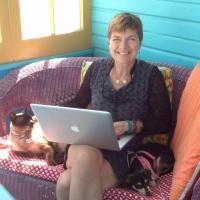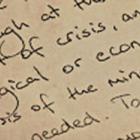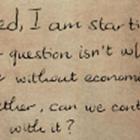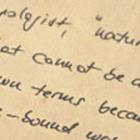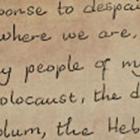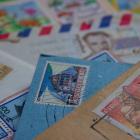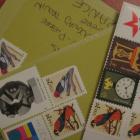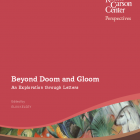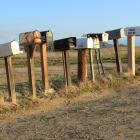Letter from Mark Wilson to Rachel Carson
Mark Wilson is a historian who studied at the Northumbria University, United Kingdom. Currently he is teaching English in Beijing, China.
Rachel Carson was a US marine biologist and conservationist; she was the author of the book Silent Spring.
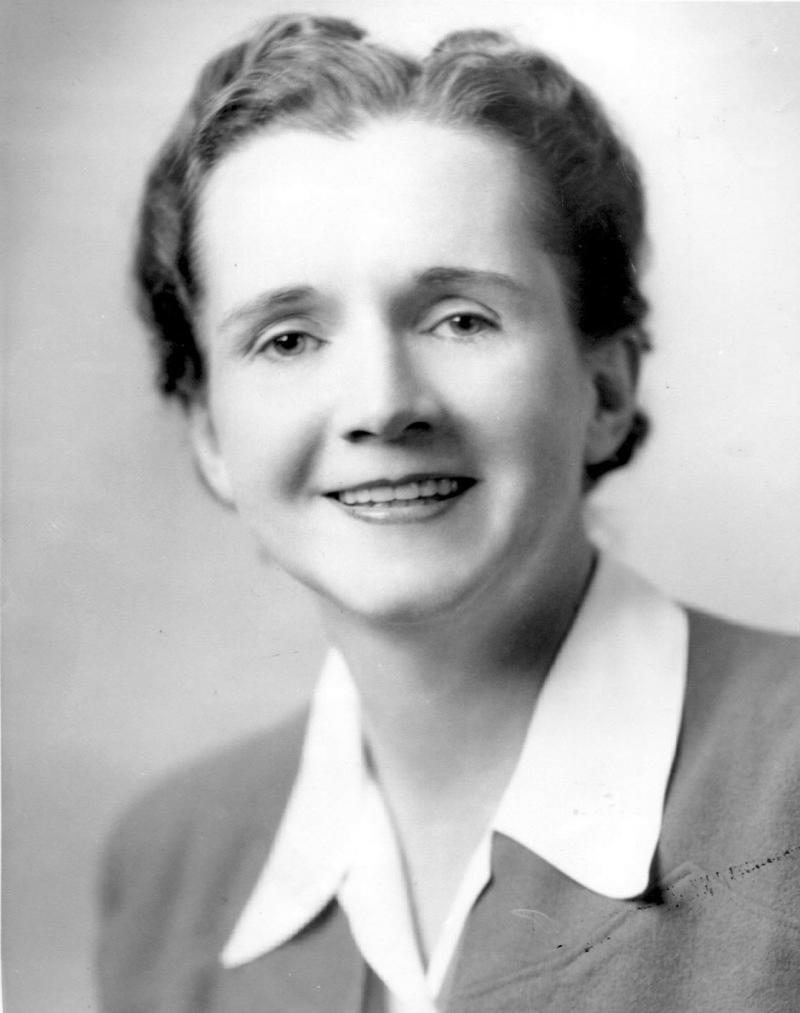
Rachel Carson (1907-1964), American marine biologist and author of Silent Spring
Rachel Carson (1907-1964), American marine biologist and author of Silent Spring
 1944 U.S. Fish & Wildlife Service, National Digital Library. View image source.
1944 U.S. Fish & Wildlife Service, National Digital Library. View image source.
 This work is licensed under a Creative Commons Public Domain Mark 1.0 License.
This work is licensed under a Creative Commons Public Domain Mark 1.0 License.
Beyond Hopelessness
Dear Rachel Carson,
I should begin by saying thank you. When I was a kid I would have said my “heroes” were Yoda from Star Wars, and perhaps also Indiana Jones. As an adult, you would be at the top of my list.
I first heard of you when I was a master’s student. My supervisor suggested I write about you and your work, and how it was received in Britain.
It was the beginning of a long journey with you, which I have only recently completed, in an academic sense, but which I have yet to finish in a personal one. I have not read all your published work yet, though I was lucky enough to talk about you—on a podcast for an environmental history website.
The environment—or more particularly, the destruction of the environment—affects me greatly. My Facebook wall and my Twitter feed are filled with articles reposted or retweeted about the environment, most of it negative. It is clear that the climate is changing, mostly for the worse, something which you hinted at in your work, but which you did not have the chance to expand on.
I wonder what you would think of the environmental movement today. In the film X-Men: Days of Future Past, the opening reminds me of the opening chapter of your most famous book, Silent Spring. Professor Xavier describes the future as a dark, desolate world, a world of war, suffering, and loss on both sides. In the film, mutants, and the humans who dare to help them, fight an enemy they cannot defeat. It causes me to wonder: Are we destined to follow the same path? Are we destined to destroy ourselves as we have destroyed so many species before us? Or can we evolve fast enough to change ourselves and thus, change our fate? Is the future truly set?
Silent Spring is a warning for the future. But equally it conveys a sense of hope. Your words make me feel that all not lost. Your words are your most powerful weapon. You were an early environmental historian, even before the discipline formally existed. The first chapter of your most famous book is only a page or two long, yet, it sets the scene for the rest of the story, and whilst it is about a mythical town and warns against the perils of uncontrolled and unquestioned science, underneath it, I read a rallying cry to act, and to do more to stop this future from actually coming true.
…
In researching for my master’s dissertation, I read up on your life. You came from relatively humble beginnings, and money was always a problem. There was something of a loner about you. I saw that in myself too. You had an intimate, intense relationship with nature and I only wish I had come upon you sooner. Perhaps I would have stayed on and studied science in university, rather than history.
You also showed me, when I was really struggling with my PhD, that it is possible to be successful without attaining that degree. Through your experience, I realized that a PhD isn’t the be-all and the end-all. I know you wanted one but I think not getting one was actually better for you. Had you spent years in college, you might not have had the opportunity to write what you did, when you did.
There is a general sense of hopelessness in much of the environmental literature, news stories, and documentaries that I read and watch. We hear that climate change is getting worse, wildlife are becoming extinct, and pollution is increasing. It can be difficult to find a positive. I think, however, if you were here, you would be projecting a message of hope. You would remind us that we are not all forsaken and that we can act. Even if we go down fighting, we should at least try, as you did.
I read that your favorite work was not your most famous book. The Sense of Wonder is a book about your walks through woods and along the Maine coast with your nephew, and it was written specifically for children. You negate any sense of hopelessness with which the environment might be perceived when you write:
Those who dwell the beauties and mysteries of the earth are never alone or weary of life. Whatever the vexations or concerns of their personal lives, their thoughts can find paths that lead to inner contentment and to renewed excitement in living. Those who contemplate the beauty of the earth find reserves of strength that will endure as long as life lasts.
And so, Rachel Carson, thank you. For opening my eyes to the wonder of nature; for the relationship I have developed with you through scholarly research; and for being so humble and quiet yet being so brave. You never once ran from the fight which you were faced with, whether it was your cancer or the responses to Silent Spring. You are my hero. But, above all, thank you for replacing despair with hope; for your legacy as the “nun of nature” and as a founder of the modern environmental movement; and for your delight at the wonders of the natural world. If we all saw the wonder of the environment, as you did, perhaps we would all take more time to care for it.
Thank you.


